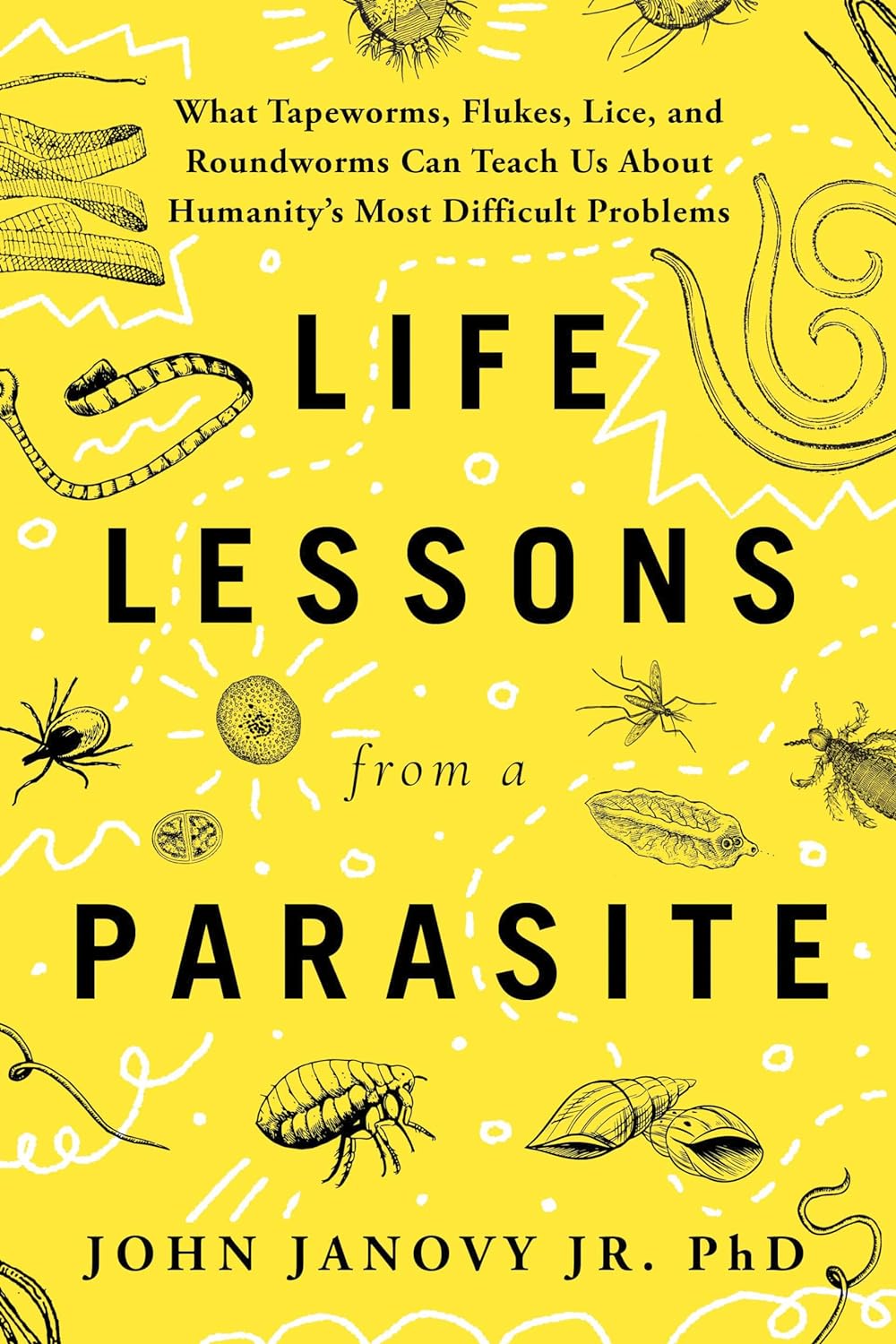
Life Lessons from a Parasite is an interesting monograph with observations on parasitology and some comparisons to human society written by Dr. John Janovy, Jr. Due out 20th Aug 2024 from Sourcebooks, it's 336 pages and will be available in paperback, audio, and ebook formats. It's worth noting that the ebook format has a handy interactive table of contents as well as interactive links and references throughout.
Parasitic existence, that is to say, living on/at the cost of, another organism is the most common method of life on planet Earth. Lice, tapeworms, flukes, and other parasites have existed virtually unchanged in the large scheme of things for millions of years. Some of them are annoying to us (lice), some are life-threatening (malaria), and some are truly horrifying (Guinea-worms).
The author, a respected parasitologist and parasite ecologist, sets the book up with a pretty good, mostly accessible, scientifically accurate crash course into parasite ecology and the biological niches they occupy. The book is well annotated throughout, and he does a good job of introducing the concepts and terminology with solid context to make it accessible to most readers. For non-bioscience-nerds, some effort will be required. He's good at making the necessary science understandable, but some effort will be required on the part of the reader.
He uses case studies to illustrate concepts... and then draws larger inferences and parallels to human society. This is where the book goes a bit off the rails, honestly. His science is unquestionably sound. He knows how maggots, flukes, and tapeworms work and can explain them, without the shadow of a doubt. Where he jumps into drawing comparisons between desensitization to dissecting mice or using them for research to wholesale mass deportation and genocide, is less successful (though, certainly, it's a concept which feels logical and intuitive - it's still scientifically sloppy).
The book is annotated throughout, and the bibliography and chapter notes are probably worth the price of the book and will provide readers with many hours of further reading.
Four stars. This is a guy with vast life experience, who unquestionably knows what he's talking about. He's clearly a gifted lecturer (he's retired now, apparently, so not actively teaching). The concepts involved in the material aren't all simple or easily understood... some are complex (college level biology). It would be a good choice for public library acquisition, home use, or possibly for gift giving to a science interested friend.
Disclosure: I received an ARC at no cost from the author/publisher for review purposes.
No comments:
Post a Comment